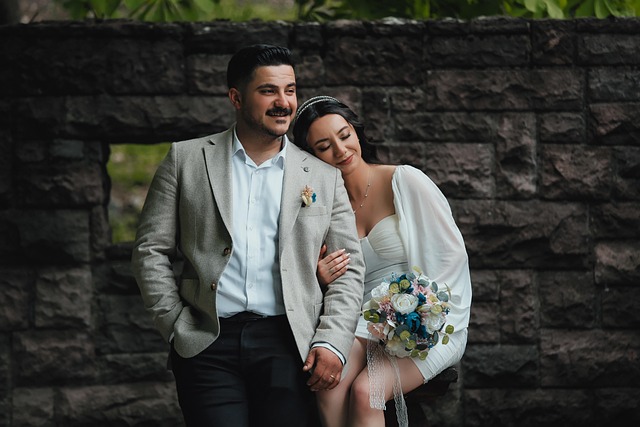Gilbert Christian Couples Therapy offers a unique, compassionate approach to conflict mediation, transforming disputes into opportunities for growth and stronger connections. Mediators act as facilitators for open dialogue, validating emotions, and encouraging empathy through skilled questioning and reflective listening. This structured process identifies root causes, guides partners towards shared goals aligned with Christian principles, and promotes active listening and clear communication. Post-mediation follow-up ensures lasting peace, fostering understanding, resilience, and healthier conflict resolution strategies.
“Discover the powerful art of grace-filled conflict mediation, a transformative approach that nurtures peace within couples. This unique method, often incorporated into Gilbert Christian Couples Therapy, offers a safe space for resolution. In this comprehensive guide, we explore the role of mediators, essential strategies for successful mediations, and post-mediation follow-up to foster lasting relationships. By understanding these principles, couples can navigate challenges with grace, enhancing their connection and strengthening their bond.”
- Understanding Grace-Filled Conflict Mediation: A Unique Approach
- The Role of a Mediator in Gilbert Christian Couples Therapy
- Strategies for a Successful and Transformative Mediation Process
- Nurturing Lasting Peace: Post-Mediation Follow-Up and Relationship Growth
Understanding Grace-Filled Conflict Mediation: A Unique Approach

Grace-filled conflict mediation is a unique approach that combines elements of compassion and understanding, making it distinct from traditional conflict resolution methods. This method, popularized by Gilbert Christian Couples Therapy, emphasizes creating a safe and supportive environment where both parties can openly express their feelings and needs without fear of judgment. By fostering empathy and forgiveness, this technique aims to transform conflicts into opportunities for growth and deeper connection.
Unlike other strategies that might focus on winning or losing, grace-filled mediation encourages active listening, genuine communication, and mutual respect. It recognizes that conflicts are often rooted in deeper emotional issues and seeks to address these underlying problems. Through this approach, couples can navigate challenging conversations with kindness, ultimately strengthening their relationship by building resilience and a shared understanding.
The Role of a Mediator in Gilbert Christian Couples Therapy

In Gilbert Christian Couples Therapy, the mediator plays a pivotal role in facilitating meaningful dialogue and guiding partners towards resolution. They create a safe and supportive environment where open communication can flourish, ensuring both parties feel heard and respected. The mediator doesn’t take sides or offer solutions; instead, they help couples identify their shared goals and work collaboratively to find resolutions that honor their faith and values.
By skilled questioning and reflective listening, the mediator helps unearth underlying issues and emotional triggers, allowing couples to address the root causes of their conflicts. This process fosters empathy and understanding, enabling partners to navigate challenging conversations with grace and kindness. Ultimately, the mediator empowers couples to develop healthier communication patterns and strengthen their bond through a transformative mediation experience aligned with Christian principles.
Strategies for a Successful and Transformative Mediation Process

A successful and transformative mediation process involves a blend of active listening, empathy, and clear communication strategies. Mediators, like those at Gilbert Christian Couples Therapy, should create a safe and supportive environment where both parties feel heard and respected. This often means reflecting back emotions, validating perspectives, and encouraging open dialogue without judgment. By fostering understanding and shared responsibility, mediators can help couples navigate their differences constructively.
Additionally, establishing clear goals and agenda items is vital. This structured approach ensures the mediation stays focused on resolving conflicts rather than veering into unproductive arguments. Regularly checking in with both parties to assess progress and adjust strategies as needed further enhances the process’s effectiveness. Ultimately, a skilled mediator guides couples towards sustainable solutions that address underlying issues while promoting positive relationships moving forward.
Nurturing Lasting Peace: Post-Mediation Follow-Up and Relationship Growth

After successful conflict mediation, fostering lasting peace involves a dedicated post-mediation follow-up process. This critical phase is where deep wounds can heal and relationships can flourish. At Gilbert Christian Couples Therapy, we recognize that reconciliation isn’t just about resolving immediate issues; it’s about nurturing a foundation for future growth. Our therapists guide clients through structured check-ins, offering safe spaces to reflect on the mediation process and share ongoing challenges or victories.
Through these continued interactions, individuals learn to communicate more effectively, build understanding, and develop healthier conflict resolution strategies. Over time, this strengthens the relationship, fostering a deeper connection that can withstand future disagreements. The post-mediation period is an opportunity to cultivate empathy, forgiveness, and resilience, leading to a lasting sense of peace and harmony.
Grace-filled conflict mediation, as exemplified by the principles of Gilbert Christian Couples Therapy, offers a unique approach to resolving disputes within relationships. By prioritizing empathy, forgiveness, and understanding, mediators facilitate transformative processes that promote lasting peace. Integrating strategies from this method ensures successful outcomes, fostering growth and strengthening bonds between partners. Thus, through nurturing an environment of grace, couples can navigate challenges and embrace a deeper level of connection post-mediation.






